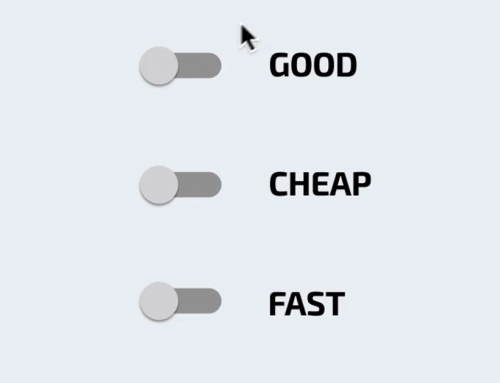Getting the most out of each day
There are only 28,800 seconds in the average working day and that never seems to be enough.
How many times have you stressed over this and ended up either working longer hours or feeling guilty because something hasn’t been done.
It’s a common problem. With IT enabling us to work from anywhere at any time, the temptation to spend more time working to complete the day’s tasks is great.
Below are a few tips to help you prioritise your workload and get your work/life balance… more balanced.
1 – Plan your day
Spend 15 minutes at the end of each day planning what you are going to do tomorrow and do it in this order:
- Brain dump – write a list of everything that needs to be done.
- Prioritise – use Eisenhower’s Matrix to prioritise your list.
- The method is attributed to President Dwight D. Eisenhower who said, “I have two kinds of problems, the urgent and the important. The urgent are not important, and the important are never urgent.”
- Score each item on your task list against whether the task is important, urgent, both or neither. Tasks that are important help us achieve our goals. Tasks that are urgent demand immediate attention.


- Prioritise as follows:
- Important and Urgent – these tend to to be firefighting’ tasks or tasks that will lead to some form of crises if not done.
- Important but not urgent – these are the tasks that will help you obtain your business goals such as strategic and tactical planning.
- Urgent, but not important – these are generally tasks that are required by other people in order for them to achieve their goals.
- Neither important or urgent – these are generally distractions and should be avoided or ignored.
- Remember, not all tasks have to be done the following day. You can priortise tasks to be days, weeks or even months ahead.
- Allocate time – once your list is prioritised, allocate each task an amount of time to complete
- The ‘To Do’ list – plan your day allocating enough time to do each task. Remember to allow extra time for the following:
- important and urgent issues that could crop up unexpectedly.
- breaks
- meetings
- planning at the end of the day
2 – Email
Turn off notifications and allocate time to check your email box several times a day. There is always a temptation to check and reply to emails as soon as an alert comes through. This can interrupt your train of thought and make the carrying out of tasks take longer. Prioritise emails to be dealt with later as described above.
3 – Be realistic
Often the deadlines we set ourselves are unrealistic. They may have been realistic when they were first set, but deadlines need to reviewed as time progresses. I was once told that a deadline was set in stone. My reply was, ‘so were the 10 commandments, but it didn’t stop people breaking them.
4 – Be open to help
Most owners of small businesses didn’t set out to be managers. They had a great idea and it snowballed. Look to get help by outsourcing recruitment, marketing, accounts and admin.
5 – Do not disturb
We are all too polite. One of the biggest draws on our time is other people constantly interrupting us. Not only do we then put everything on hold to satisfy their priorities, but it also interrupts our train of thought leading to our own tasks taking longer. It is perfectly acceptable to tell others that you are not to be disturbed. Here are some suggestions:
- Inform everyone beforehand that you are not to be disturbed.
- Find a room where you can lock the door.
- Allocate an area in which all those working within are not to be disturbed.
- Place a large ‘Do Not Disturb’ sign next to you.
- Wear a pair of headphones… the bigger the better. For some reason people are less likely to disturb you if your ears are covered.





